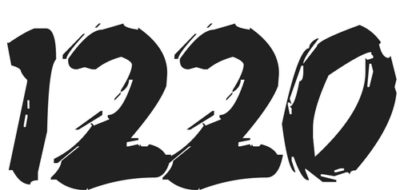Introduction To Smart Goals For Musicians
Guest post from Tony Clark
Creating a goal is easy! We can talk about goals all day long. We can write down a goal, pin it to our computer, even put them on our To Do list. You DO have a To Do list, don’t you? Yes, creating them is easy but how do we MANAGE them ? How do we succeed at them? How do we make them attainable and concrete?
The first thing we need to understand is what is NOT a goal. It is NOT your to do list or your task list. It is NOT the popups your calendar throws at you to remind you to ‘be there’ or ‘do that.’ Those steps are stepping stones but they are not what we are after when we are looking for SMART Goals.
Let’s begin at the beginning – the acronym. S. M. A. R. T.
5 Easy sections coming to you to dive into. They are:
- – Specific
- – Measurable
- – Attainable
- – Relevant
- – Time Based.
Let’s Get Specific
Now let’s get down to the Specifics of this topic! <— See what I did there?
Here are 2 written goals :
1) I hope to release an album.
2) I will release a 10 song concept album on Itunes by April 30, 2017.
These are both the same goal but number 2 is far more specific!
When we are very specific AND write it down as a positive statement we are training our brain to achieve the goal. I removed the word “hope” and replaced with “will”. I have a specific quantity, idea, and timeline. All in the first step of the SMART goals system.
Your Specific statement should answer 4 questions –
Who – who is involved? Does this goal need a team? Is the Who your audience?
What – What do you want to accomplish?
When – When is the ending? You have to have an ending to know if you made the goal.
Where – What locations are important to the goal?
This is the critical foundation to achieving your goal.
Get Out Your Measuring Stick
Measuring the success of our steps to our end goal is critical. We have no idea where we are without some kind of road map where we can check off our progress.
How do we define when we have successfully met a metric or defined task?
We can use a calendar with deadlines, To Do lists with checkboxes and time tables. A spreadsheet or any other readily available tool on the market. The wonderful thing about Measuring is it’s absolute and tangible. We either hit the metric or we did not. We need to clearly define how we will measure our progress.
A calendar would be a perfect tool for releasing a 6 song EP. A target date is placed on the calendar, let’s say 120 days into the future. Now we can reverse engineer where our metrics need to fall on the calendar. Mark by what day each song needs to be written, Then by which day it needs to mixed then mastered. Keep in mind that each step may have a set of measurable metrics within the step. How long does a mix engineer need? How long does a mastering engineer need?
The key is we have to be able to measure our progress to success. We need a beginning, a middle, and an end. If you find it difficult to measure your progress then the SMART goal is not Specific enough.
Can You Attain Your Goal – did you bite off more than you can chew?
ATTAINABLE.
I like the simplicity of this one. Is the goal attainable? Is it reasonable? Does it make sense?
If we set a goal that we will never hit we have already set ourselves up for failure. Don’t do that! Make a goal that is challenging but attainable. But how do we determine if a goal is attainable?
To determine this we need to take stock of our resources. We have three main resource ‘buckets’. Time, energy, and money.
If we have a major deficit in either of these the goal may be very difficult to achieve. This is why assessing our resources falls back into the first steps of creating our goal. Running out of a major resource will surely make the goal unattainable. If we see a resource is going to be depleted before completion we need to determine how to build up that resource.
If we are running out of time we may need to look at our completion date, or find ways to better manage our day to day tasks.
If money is the issue, can we find ways to make things less expensive? Are there certain steps we can do ourselves or find volunteers to assist?
Energy is a tough one. How do we find more energy? I am all for naps! 🙂
Energy is the most slippery of the resources. Time – we can use timers to watch. Money we can check our bank account. Energy is less tangible. To make a goal attainable we need to understand how much energy we have to pour into the goal.
Make the goal attainable – It has to make sense and we have to have the resources to put into the goal. We may need to refine the SMART goals system if we find we have an UNattainable goal on our hands.
The Model of Relativity – Are You For Real?
Often times your will see the R stands for realistic. Here’s a quick statement on Realistic.
“Realistic- To be realistic, a goal must represent an objective toward which you are both willing and able to work. A goal can be both high and realistic; you are the only one who can decide just how high your goal should be. But be sure that every goal represents substantial progress. A high goal is frequently easier to reach than a low one because a low goal exerts low motivational force. Some of the hardest jobs you ever accomplished actually seem easy simply because they were a labor of love.”
Let’s dive directly into Relative. This is juicy one. The basic idea is this. Is the goal relative to changing perceptions? Does it have buy-in from others ( can others relate)? Is it going to move the ‘needle’ overall.
Does it change perceptions? What perception are you wanting to change or align with. In the case of your creative business you may want to shift your fans perception of your music or your offerings. Perhaps you’ve been giving away your music to generate interest and now you want to monetize. Does the goal align with changing the perception of your audience?
Is it relative to moving the needle? Do you want to increase your email list? Sell more albums? Write more emails and create deeper engagement? These are points on a meter that a needle is pointing to. Your goal needs to be relative to moving that virtual needle.
Relativity may seem like a no-brainer, but take a moment and make sure your goal answers the relative question. If not, your resources of time, money, and energy are going to be sadly wasted.
Can You Spare Some Time?
Time Based.
We need to have a time stamp on our goal. A point of stopping and determining if we have achieved the goal or not. We can also set time systems within the goal.
For example I want to release my next EP of 7 songs by April 30th. I have a timeline to achieve. I may also have certain time based check points or guide posts on the way to April 30th. I may need to have a song completed within a specific time frame. Perhaps one song tracked per week and going to mix.
Have a good understanding of the time frames you need to work within. This can make or break your goal. This is one to take a good look at the Realistic nature of the goal. Your time frame needs be accurate and realistic?
Have a time base also to create urgency. “Some day” never comes. “One day” never quite gets on the calendar – but, April 30th, 2017 is going to happen without a doubt. It’s on the calendar. (At least the last time I checked my Peanuts calendar).
The timing of the goal is absolutely critical to your success. Many goal setters will reverse engineer their goal from the Time part of the system. They know their time expectation and can then work backwards to set the rest of the SMART goals structure.
I appreciate you following along with me! Now is the time to lock down some solid goals for 2017. Feel free to share them with me and if you have questions or need a good sounding board feel free to contact us?
-Please Relax, Reset, and Refocus with Tony Clark’s music and share in his journey at renascencemusic.com










